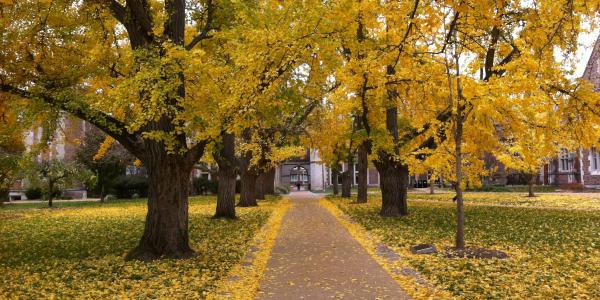Ahead of the fall 2020 semester, Arts & Sciences welcomed 30 tenure-track and teaching-track faculty to departments and programs across the natural sciences, social sciences, and humanities! Meet the newest members of our faculty community.
Department of African and African-American Studies
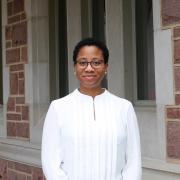
Karma Frierson, PhD, joins the Department of African and African-American Studies as an assistant professor. Frierson specializes in Afro-Latin American Studies. Her research, an ethnography of the Gulf Coast port city of Veracruz, Mexico, traces how blackness functions as a genealogy, an expectation, and a cultural resource for the regional identity known as jarocho. Since earning her doctorate in anthropology at the University of Chicago in 2018, Frierson was the postdoctoral associate in Latin American Studies at Rutgers University. She has been recognized as a Fulbright Student Scholar, a National Science Foundation Graduate Fellow, and a Mellon Mays Undergraduate Fellow.
American Culture Studies
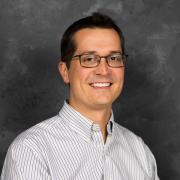
Noah Cohan, PhD, has joins American Culture Studies as a lecturer. Cohan’s research and teaching focus on American fan cultures, sports, and narratives, particularly as they pertain to race and gender. He first began teaching AMCS courses in 2013 while earning his doctorate at Washington University. In 2019, Cohan’s book We Average Unbeautiful Watchers: Fan Narratives and the Reading of American Sports was published by the University of Nebraska Press. He is co-convener of the Sports and Society: Culture, Power, and Identity initiative in AMCS and founding coordinator of the Sports Studies Caucus of the American Studies Association.
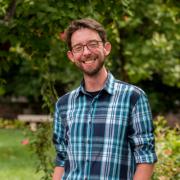
Dave Walsh joins American Culture Studies as a lecturer. His principal research area is the development of the American computing industry as it emerged from university and military investment during WWII. More broadly, his work traces the development 19th- and 20th-century cultural imaginations of technology in historical contexts, and how these figurations codified racial and gender inequalities within the political and cultural mystique of an ‘objective’ and ‘rational’ technological society. His courses include studies on race and policing surveillance in urban contexts; the engineering and cultural history of the internet; the engineering and cultural history of computing and computers; late nineteenth century industrialism and automobile manufacturing; St. Louis and the techno-racial politics of the 1904 world’s fair; and the technological infrastructure of fake news and election meddling.
Department of Anthropology
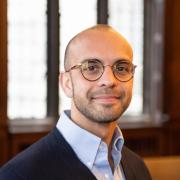
David Ansari, PhD, joins the Department of Anthropology as a lecturer. Ansari is a medical anthropologist with interests at the intersections of transnational migration, psychotherapy and trauma, and health services research. Most recently, Ansari was as a postdoctoral teaching fellow at the University of Chicago, where he earned his doctorate in 2018. His book, Therapeutic Apprenticeship: Migration, Belonging, and Mental Health Care in France, examines evolving perceptions of multiculturalism and belonging between therapists who came to France as immigrants and their therapist apprentices, many of whom identify as second or third-generation descendants of immigrants. Ansari’s courses this fall include “Social Determinants of Health and Migration” and “Global Mental Health.”
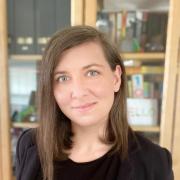
Carolyn Barnes, PhD, joins the Department of Anthropology as a lecturer. Barnes’ scholarship draws on multispecies ethnography, agrarian studies, medical anthropology, and science and technology studies to broadly examine how the dynamics of culture and capitalism converge to shape — and at times undermine — entangled human, animal, and environmental lives. As a lens into these processes, her ethnographic research and writing specifically examine the world of Thoroughbred horseracing in central Kentucky. This semester, Barnes is teaching courses in the Global Health and Environment tra ck, as well as the first-year seminar “Anthropological Perspectives on COVID-19.” She earned her doctorate at Washington University in St. Louis.
College Writing Program
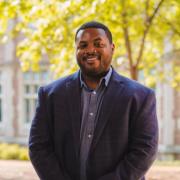
Ron Austin, MFA, joins the College Writing program as a lecturer. Avery Colt Is a Snake, a Thief, a Liar, his first collection of linked stories, has received several honors including: The 2017 Nilsen Prize, a 2019 Foreward INDIES GOLD Award, a 2020 PEN/Robert W. Bingham Prize nomination, and a 2020 Hurston/Wright Legacy Award nomination. Austin's work has been supported by grants from the Regional Arts Commission, including a 2016 Artist Fellowship. Previously, his stories have been placed in Pleiades, Story Quarterly, and other journals. Austin is active in the St. Louis literary community and currently serves as the managing editor of REMAKE, a magazine of first-year writing. He has taught writing at Washington University and the University of Missouri-St. Louis, where he earned his MFA.
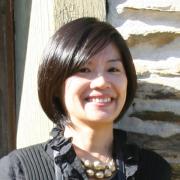
Rita Hu, PhD, joins the College Writing program as a lecturer. Hu specializes in supporting first-generation and international students. She received her master’s degree and doctorate in English from Rutgers University, with a focus on race studies. She has taught courses at Washington University since 2018, including “Fundamentals of Academic Writing,” "Intensive Legal English Reading & Writing," and “Research Writing for International Students & Scholars.” Outside of her teaching, Hu is on the executive board of Baobob People, a St. Louis-based nonprofit organization that seeks to connect people from different cultures through dialogue and learning.
Department of Earth and Planetary Sciences
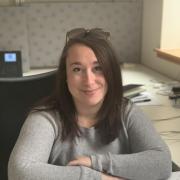
Claire Masteller, PhD, joined the Department of Earth and Planetary Sciences as an assistant professor Jan. 1 this year. Masteller’s research investigates the processes and patterns that shape the surface of the Earth and other planetary bodies. She is broadly interested in sediment transport and erosion mechanics and their role in driving landscape evolution. After earning her doctorate from the University of California, Santa Cruz, Masteller moved to Germany to undertake training in environmental seismology, active source geophysics, and their application to rocky coast geomorphology. From 2017–19, she was a postdoctoral researcher and Alexander von Humboldt Fellow at the German Research Center for Geoscience.
Department of Education
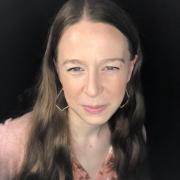
Lisa Gilbert, PhD, joins the Department of Education as a lecturer. Gilbert’s expertise includes culturally responsive pedagogy, social studies curriculum and instruction, and museum education. Her research interests are situated at the intersection of social studies education with public and popular history; her most recently published article examined ways high school students built empathy through playing the Assassin’s Creed franchise, something she is drawing on to create a First Year Seminar on video games and learning for incoming students this fall. Prior to earning her doctorate from Saint Louis University, Gilbert oversaw K-12 programming for the Missouri History Museum, where she also managed partnerships with national organizations such as Monticello and Mount Vernon.

Aurora Kamimura, PhD, joins the Department of Education as a lecturer. In addition to her teaching, Kamimura will serve as a fellow in the Office of the Vice Provost investigating and enhancing efforts on faculty diversity across disciplines, with a specific focus on STEM areas. After earning her doctorate in higher education and organization behavior at the University of Michigan, Kamimura taught at the University of North Texas and served as an organizational development consultant in areas of higher education, diversity, and inclusive classrooms and pedagogy. She current serves as on the Board of Directors for the American Association of Hispanics for Higher Education (AAHHE), and is involved in several national projects focused on the development of Latinx/a/o leadership. Her mixed methods research agenda focuses on broadening access and equity in the P-20/professoriate pathway.
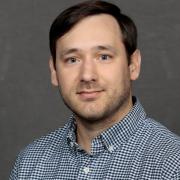
Christopher Rozek, PhD, joins the Department of Education as an assistant professor. After earning his doctorate at the University of Wisconsin-Madison, Rozek held postdoctoral positions at the University of Chicago and Stanford University. His research focuses on helping students manage their emotions in ways that facilitate their academic success and promote improved student well-being. Support for this work has been provided the Spencer Foundation, the Robert Wood Johnson Foundation, the National Science Foundation, and numerous other organizations. His research has been covered in several popular press outlets, such as the Atlantic, the Washington Post, NPR, and CNN.
Department of English
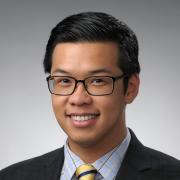
Chris A. Eng, PhD, joins the Department of English as an assistant professor. Eng’s work investigates the productive frictions and intimacies between Asian American literatures and queer of color critique. After earning his doctorate from the The Graduate Center, City University of New York, Eng served as a postdoctoral research associate at the University of Illinois at Urbana-Champaign and an assistant professor at Syracuse University. At WashU, he will be affiliated faculty for the minor in Asian American Studies and teach English courses including “American Dreams, American Nightmares” and “Gender & Sexuality in Asian American Literature.”
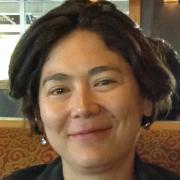
Stephanie Li, PhD, joins the Department of English as the Lynne Cooper Harvey Distinguished Professor of English. Li’s research is united by a commitment to bridging the divide between political rhetoric and literary narratives. She has authored six books, including the recent Signifyin(g) Immigrants: Twenty-First Century Pan-African American Literature, which charts the contours of literature by African born or identified authors centered around life in the United States. Prior to joining the Washington University faculty, Li was the Susan D. Gubar Chair in Literature and Associate Vice Provost for Faculty Development and Diversity at Indiana University, Bloomington. She earned her doctorate from Cornell University.
Film and Media Studies
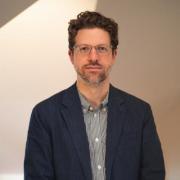
John Powers, PhD, joins Film and Media Studies as an assistant professor. Powers’s research draws from cultural history, media theory, and discourse and textual analysis to examine the use of commercial technologies as material and cultural resources in experimental film and video. Powers’s writing has appeared in Cinema Journal, Screen, October, Millennium Film Journal, and other publications. Powers previously served as a lecturer in Film and Media Studies, where he has taught courses on experimental film, contemporary women directors, documentary film and media, horror across media, and digital cinema production. He earned his doctorate from the University of Wisconsin-Madison.
Department of History
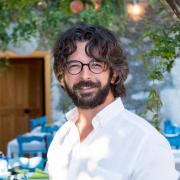
Uluğ Kuzuoğlu, PhD, joins the Department of History as an assistant professor. Kuzuoğlu’s research interests lie in modern China, Central Asia, and Ottoman Empire. His current book project, Codes of Modernity: Chinese Scripts in the Global Information Age, explores the history of script reforms in China and the world during the 19th and 20th centuries. While earning his doctorate from Columbia University, Kuzuoğlu conducted research in the PRC, Taiwan, Russia, and Turkey. This semester, he is teaching “Science and Technology in East Asia” and “Topics in History and Technology: A History of Information.”
Department of Mathematics and Statistics
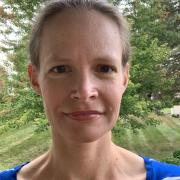
Abigail Jager, PhD, joins the Department of Mathematics and Statistics as a senior lecturer. Jager’s research interests include statistics, causal inference, instrumental variables, likelihood methods, and structural equation models. Since 2006, she has taught courses in the Department of Statistics at Kansas State University, most recently as a teaching associate professor. Jager has done substantial consulting work for clients in the agricultural industry, manufacturing, and other business sectors. This semester, her courses include “Elementary Probability and Statistics” and “Mathematical Statistics.”
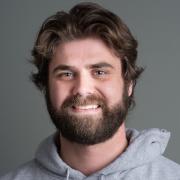
Karl Schaefer, PhD, joins the Department of Mathematics and Statistics as a lecturer. Schaefer recently completed his doctorate at the University of Chicago, where he was a teaching fellow at the Chicago Center for Teaching, won the Graves Prize for excellence in undergraduate teaching, and served as a mentor in the Mathematics Research Experiences for Undergraduates program. Schaefer’s recent publications include “Class groups of Kummer extensions via cup products in Galois cohomology” and “Inclusivity in the STEM Classroom: Everyday Inclusion.” This semester, he is teaching “Foundations for Calculus” and “Calculus II.”
Department of Philosophy
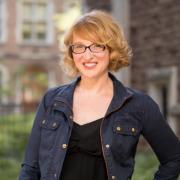
Anne Baril, PhD, joined the Department of Philosophy as a lecturer Jan. 1 this year. Baril’s research interests include ethics, epistemology, and their intersection. She is especially interested in the role of epistemic virtues and values in the good life. In her current central research project, she develops an account of epistemic virtue, and argues that epistemic virtue is both integral to the development of moral character and a constitutive contributor to well-being. Baril has taught philosophy courses at WashU since 2017; her recent and upcoming courses include “Present Moral Problems” and “Normative Ethical Theory.” She earned her doctorate from the University of Arizona.
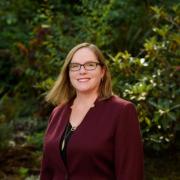
Rebecca (Becko) Copenhaver, PhD, joins the Department of Philosophy as a professor. Cophenhaver’s main area of research is the philosophy of mind, particularly perception and memory, with special attention to modern British theories of mind, including those of Thomas Reid, George Berkeley, and John Locke. She has written or edited numerous books, most recently the six-volume reference collection History of the Philosophy of Mind. Copenhaver comes to Washington University after spending nearly 20 years on the faculty at Lewis & Clark College, where she received awards for teaching, commitment to diversity and inclusion, and faculty excellence. She earned her doctorate at Cornell University.
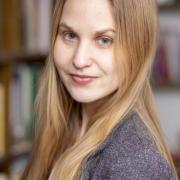
Zoe Jenkin, PhD, joins the Department of Philosophy as an assistant professor. Jenkin's research concerns the role of reasons in perception and cognition. Her recent work covers topics such as the scope of epistemic evaluability, the relationship between cognitive architecture and rationality, and conflicts between normative domains. Earlier this year, Jenkins earned her doctorate at Harvard University and held a Collaborative Visiting Fellowship at the University of London’s Institute of Philosophy. Her courses this fall include “Philosophy of Mind” and “Art and the Mind/Brain.”
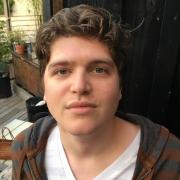
James (Jake) Quilty-Dunn, PhD, joins the Department of Philosophy as an assistant professor. Since earning his doctorate at the City University of New York in 2017, Quilty-Dunn has been a research fellow at the University of Oxford. In addition to his primary work in philosophy of mind and cognitive science, his broad research interests include philosophy of language, aesthetics, and early modern philosophy. Earlier this year, the Association for the Scientific Study of Consciousness awarded Quilty-Dunn the William James Prize for best published paper on consciousness by an early-career researcher. His book The Divided Mind: A Philosophical Introduction is under contract with Routledge.
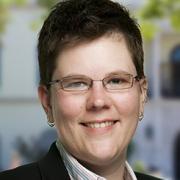
Lori Watson, PhD, joins the Department of Philosophy as a professor. Watson specializes in political and moral philosophy, feminism, and philosophy of law. She recently published three books with Oxford University Press: Equal Citizenship and Public Reason: A Feminist Political Liberalism (2018), Debating Sex Work (2019), and Debating Pornography (2019). Prior to joining the Washington University faculty, Watson chaired the Department of Philosophy at the University of San Diego. Also at San Diego, she directed Women’s and Gender Studies, was affiliate faculty in the Law School, and held numerous university service positions. She earned her doctorate from the University of Illinois-Chicago.
Department of Physics
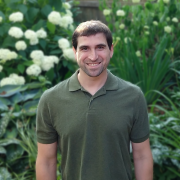
James Mertens, PhD, joins the Department of Physics as an assistant professor. Mertens' research focuses on relativistic cosmology, working to improve our understanding of how gravity and matter interact across the largest distances we can observe. Through numerical modeling within the full framework of general relativity, his research group is able to make powerful predictions of measurable phenomena. Mertens earned his doctorate at Case Western Reserve University. Prior to joining the Washington University faculty, he was a postdoctoral researcher at York University, associate postdoctoral researcher at Perimeter Institute, and CITA National Fellow.
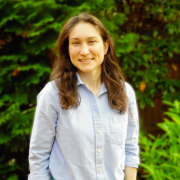
Johanna Nagy, PhD, joins the Department of Physics as an assistant professor. Nagy's research focuses on experimental cosmology. Her lab designs and builds instruments to enable more precise measurements of the Cosmic Microwave Background with a combination of balloon-borne and ground-based telescopes, including SPIDER and CMB-S4. Together, these experiments probe topics including the physics of inflation, the nature of dark energy, and the properties of fundamental particles. Before joining Washington University, Nagy was a Dunlap Fellow with the Dunlap Institute for Astronomy & Astrophysics at the University of Toronto. She earned her doctorate from Case Western Reserve University.
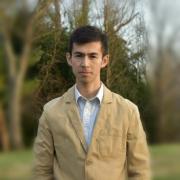
Sheng Ran, PhD, joins the Department of Physics as an assistant professor. Ran’s research aims to realize and understand exotic states of quantum materials, using combined techniques of bulk crystal synthesis, electric and thermal transport measurements under extreme temperature, pressure and magnetic field conditions, and neutron and high energy X-ray scattering. His lab is dedicated to the discovery, synthesis, characterization, and control of novel quantum materials with emergent electronic and magnetic states. Ran has previously held postdoctoral positions at the University of Maryland/NIST and the University of California, San Diego. He earned his doctorate at Iowa State University.
Department of Political Science
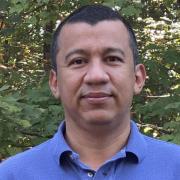
Ted Enamorado, PhD, joins the Department of Political Sciences as an assistant professor. Enamorado’s fields of specialization are political economy and political methodology. He holds a doctorate from Princeton University, where he was affiliated with the Program for Quantitative and Analytical Political Science (Q-APS), the Research Program in Political Economy, and the Fellowship of Woodrow Wilson Scholars. Before graduate school, Enamorado was a research fellow at the Research Department of the Inter-American Development Bank, and a consultant at the World Bank’s Latin America and the Caribbean Region Poverty Reduction Unit. He most recently taught at the University of North Carolina-Chapel Hill.
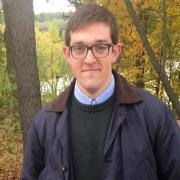
Michael Olson, PhD, joins the Department of Political Science as an assistant professor. Olson’s broad interests are representation, legislative politics, and political parties in the United States. His research focuses on the relationship between electoral and legislative institutions and legislative representation in the United States using observational data from across history and levels of government. Particular interests include the effects of competitive party systems, the impacts of electoral and legislative reforms, and the importance of the elective franchise. His major research project focuses on the one-party “Solid South” between Reconstruction and WWII. Earlier this year, Olson earned his doctorate at Harvard University in the Department of Government.
Department of Psychological & Brain Sciences
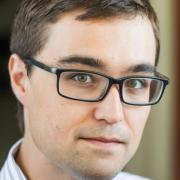
Zachariah Reagh, PhD, joins the Department of Psychological & Brain Sciences as an assistant professor. Reagh studies how we represent and remember experiences, and how this changes as we age. His research is motivated by two main questions: (1) How does the human brain parse, store, and retrieve dynamic experiences, like those we encounter in our everyday lives? (2) How do these processes change in healthy aging and with age-related pathology, such as Alzheimer’s disease? Reagh was most recently a postdoctoral fellow at the University of California, Davis. He earned his doctorate from the University of California, Irvine.
Department of Romance Languages and Literatures
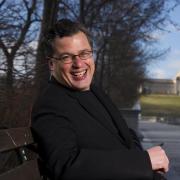
Lionel Cuillé, PhD, joins the Department of Romance Languages and Literatures as a teaching professor. Cuillé specializes in 19th-and 20th-century French literature. His research examines the relationship between turn-of-the-century technologies and the avant-gardes. From 2012-20, Cuillé served as associate professor and the Jane and Bruce Robert endowed chair in French Studies at Webster University. For his contributions to the promotion of French culture in the Midwest, Cuillé was named "Chevalier dans l’ordre des Palmes Académiques" in 2017 by the French government. He is the founder of French ConneXions (former Centre Francophone), a cultural center promoting French and Francophone culture in St Louis.
Department of Sociology
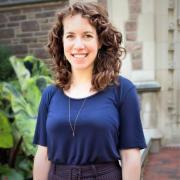
Margot Moinester, PhD, joins the Department of Sociology as an assistant professor. Moinester investigates questions concerning immigration, inequality, and health. Her current project uses quantitative and qualitative methods to investigate how and why rates of immigration enforcement vary over time, between demographic groups, and across the elaborate jurisdictional landscape of the United States. Articles from this project have been published in American Behavioral Scientist and Demography and received awards from the American Sociological Association and the Population Association of America. Moinester's research has been supported by the American Bar Foundation and the National Science Foundation, among others. She earned her doctorate from Harvard University.
